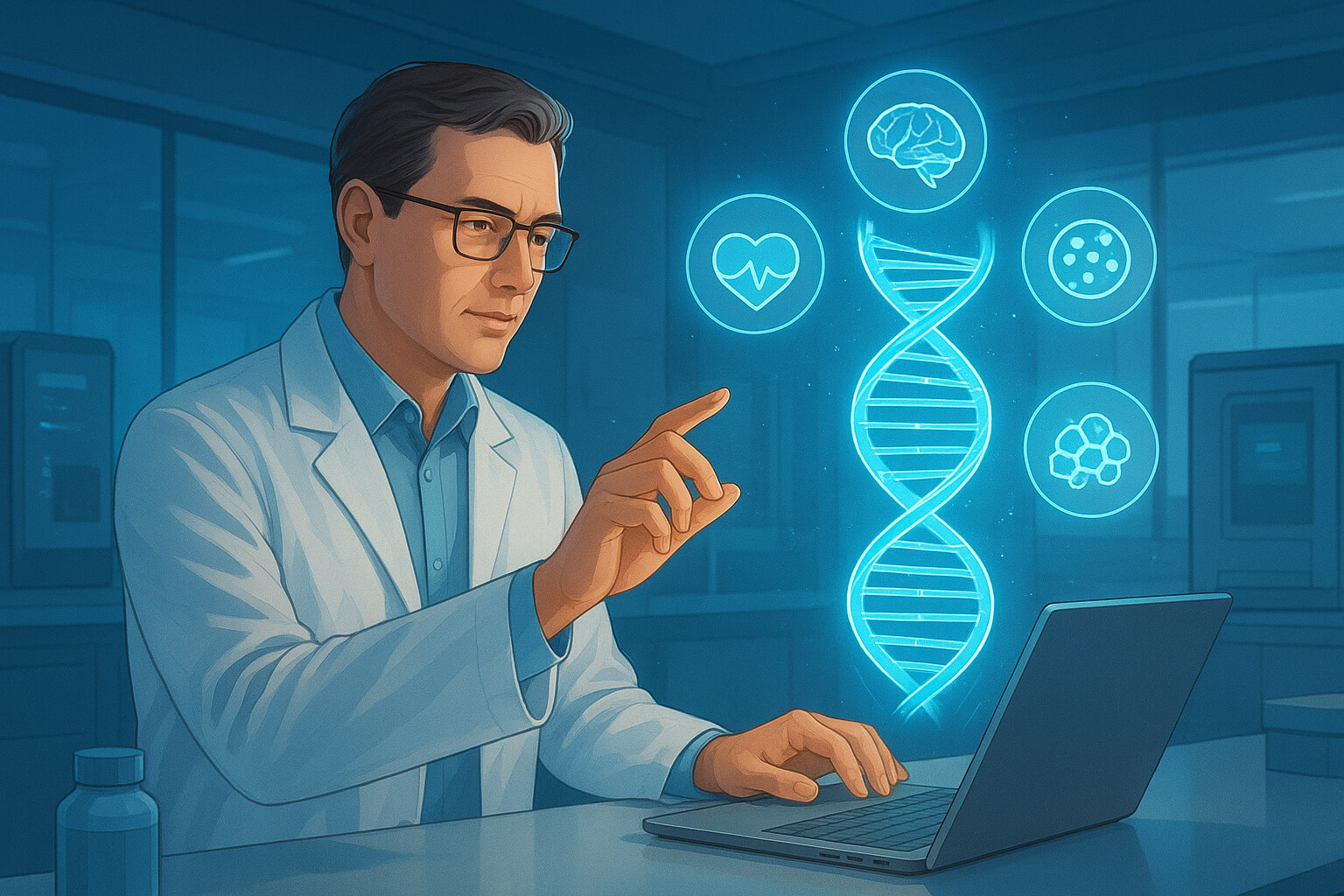September 05, 2025

Genetic research is revolutionizing healthcare. By unraveling the human genome—the complete set of DNA instructions that govern our biology—scientists are gaining powerful new tools to understand, prevent, and treat disease. What was once the realm of science fiction is now a foundation for modern medicine.
Whether it's customizing drug treatments based on your unique genetic profile or developing therapies that repair defective genes, the field of genetics offers hope for a healthier, more personalized, and more precise future in medicine.
One of the most transformative impacts of genetic research is the emergence of personalized medicine (also known as precision medicine). This approach tailors medical treatment to the individual characteristics of each patient, including their genetic makeup, environment, and lifestyle.
Traditionally, treatments were developed with the average patient in mind. But now, with genetic insights, doctors can:
In oncology, genetic testing can determine which mutations are driving a tumor. Instead of using standard chemotherapy alone, doctors may prescribe targeted drugs like:
This approach often leads to better outcomes with fewer side effects, because treatment zeroes in on the biological root of the disease.
Mental health research is also exploring how genetics influences responses to medications for depression, anxiety, or schizophrenia. Learn more from Rocketpages: Understanding Mental Health.
Gene therapy is perhaps one of the most thrilling frontiers in genetic research. Instead of merely treating symptoms, gene therapy aims to fix the underlying cause—a faulty gene.
Gene therapy involves modifying a person’s DNA by:
According to the NIH, over 1,000 gene therapy trials are currently underway globally, marking a new era of disease treatment at the molecular level.
Genetic research isn't limited to rare or inherited conditions—it also plays a crucial role in understanding and managing chronic illnesses that affect millions of people worldwide.
The relationship between genetics, the immune system, and chronic inflammation also plays into the gut-brain connection—an emerging area of study linking digestion, mood, and immunity. Explore more.
With great power comes great responsibility—and nowhere is this truer than in the field of genetic research. As our ability to manipulate DNA advances, ethical questions loom large.
The World Health Organization (WHO) and other international bodies are working to create ethical frameworks to guide genetic innovation responsibly and ensure fair access to these life-changing tools.
The future of medicine will be shaped by the convergence of genetics, artificial intelligence, and biotechnology. These technologies enable faster analysis of enormous genetic datasets, helping researchers:
Supporting ongoing research is crucial. Public awareness and funding help translate scientific breakthroughs into accessible, life-saving medicine.
Genetic research is not just a scientific milestone—it's a paradigm shift in how we understand health, disease, and ourselves. From decoding the genome to rewriting faulty genes, we are entering an age where medicine can be preventive, predictive, and personalized.
The challenges are real—ethical dilemmas, access disparities, and technical limits—but so is the potential. With continued investment, education, and responsible innovation, genetics can help build a healthier future for all generations.
The future of medicine is already here—written in the code of life.
Stay up to date with the latest tips, expert insights, product reviews, and step-by-step guides to help you grow, create, and succeed—no matter your industry or passion.